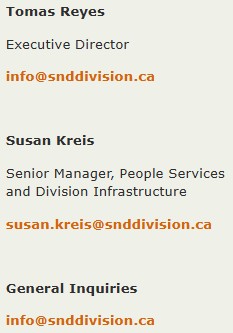Fraser Health’s Joan Rabillard explains how.
Most family doctors get into the profession because they want to help people. But for better or for worse, family practice encompasses far more than meeting with patients and treating what ails them. Charting, billing, and keeping track of a patient panel that might include thousands of patients leave many physicians feeling overwhelmed and wondering if there is a better way.
Does this sound familiar? The Practice Support Program (PSP) is here to help. Funded by the the GPSC and carried out locally by Fraser Health, the PSP exists to support physicians in identifying needs and making improvements to their practice. What those improvements look like is entirely up to each individual GP.
The foundation of this work is the PSP’s Panel Development Program.
We spoke with Joan Rabillard, Fraser Health’s PSP Manager, to find out what, exactly, the Panel Development Program is, how it can benefit members of the Surrey-North Delta Division, and how you can sign up.
The PSP and Panel Development – What You Need to Know
The PSP is funded by the GPSC but is carried out locally by the various health authorities — in Surrey-North Delta, the PSP is staffed by Fraser Health. Fraser Health’s PSP team, headed by Rabillard, visits with family physicians in the region, learning about the issues they face in their practices and offering a variety of different supports.
In the past, the PSP was structured as a series of workshops aimed at addressing common issues that GPs face in their practices. Now, however, the team has flipped their approach to focus on the individual needs of GPs, and to use those concerns to inform the individual education and small group workshops that it offers.
At the heart of this new approach is the Panel Development Program.
“Panel is foundational to any improvement work,” explains Rabillard. “A GP’s ideas need to be informed by an understanding of his or her patients and an ability to assess data.”
A GP participating in the Panel Management Program can expect personalized coaching from the highly trained PSP team to do the following:
- learn how to recognize good EMR input habits, and see whether any data is incomplete or in the wrong place
- determine exactly and specifically how many patients have chronic conditions
- create a plan and get support to tidy up their EMR data
- analyze the panel to determine specific patient needs and create a plan to address them (for example, a system to remind patients when they need to come in)
- complete 5 small quality improvement projects to gain experience with making QI changes (these projects are ones that have been identified as being worthwhile and not too difficult)
The average physician, putting in about one hour per week with the help of an MOA, is typically able to complete the program in 6 months. PSP team members are available throughout to provide any support the physician requires.
“With the Panel Development Program, we put workflow systems in place that keep everything neat, tidy, and up to date,” says Rabillard. “I have yet to meet a doctor who finishes it who didn’t think it was worth it.”
Who Benefits from the Panel Development Program?
Rabillard identifies three stages of practice where GPs would benefit most from participating in the Panel Development Program.
The first stage is early practice — those physicians who are in their first two years. “It is an incredible gift to set good habits really early on,” says Rabillard. “Never in your practice life will you face a situation where it’s hard for you to pull reports out of your EMR.”
The practice stage that Rabillard and her team see most commonly are those GPs who are well-established, who started their practice with paper charts and converted to EMR some years ago. Rabillard explains, “For many family physicians, EMR did not make life easier, because they are using EMR the same way they used paper charts.” The Panel Development Program shows these physicians how to use EMR to its full potential to improve their practice and make their lives easier.
GPs who are approaching retirement make up the third group who can benefit greatly from the Panel Development Program. A major concern of retiring physicians is ensuring that their patients will be well cared for after they retire. Panel development can help with this.
“Nobody would want to take on 5,000 active patients,” explains Rabillard. “Through the panel development process, a physician might identify that they only have 1,500 truly active patients. We are able to invest time in keeping those charts up to date so that the panel can easily be passed along to another GP.”
Is Compensation Available for Participating?
In short, yes. “The GPSC wants to support doctors to be the best they can be,” explains Rabillard. “Not only do they pay the PSP team, they also compensate GPs who participate in the program.”
While GPs are eligible for up to 15 hours of compensation and 45 CME credits for each improvement project they undertake with the help of the PSP team, there is currently a special incentive to participate in the Panel Development Program.
Rabillard explains: “Because the Panel Development Program is so foundational to any practice improvement work, the GPSC is offering a one-time incentive of up to $6000 per physician and 75 CME credits for completing the program.”
How to Learn More or Sign Up
Whether you have big concerns, or are simply looking for some small tweaks that will make your life easier, the PSP team can help. To learn more about either the PSP or the Panel Development Program, contact the Division, or get in touch directly with Rabillard and her team.
Joan Rabillard is the current manager of the PSP team at Fraser Health. She will be retiring in February after 15 years of service in primary care.



